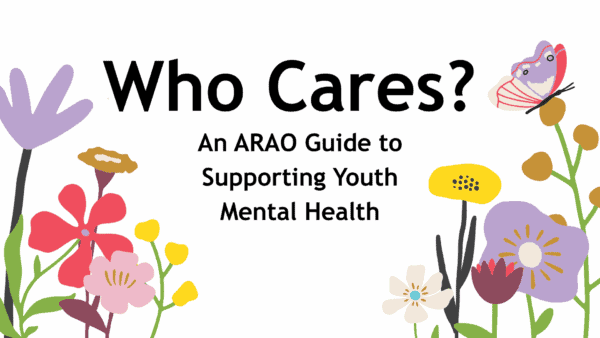From the Canadian Women’s Foundation:
Over the past two decades, the Canadian Women’s Foundation has invested in girls’ and youth programming throughout the country to build self-esteem, resilience, and healthy relationships in response to the growing mental health crisis facing young people, particularly young girls and gender non-conforming youth. Today, the need for inclusive, trauma-informed, and equity-based support remains urgent, especially for Black, Indigenous, and racialized girls, as well as trans, two-spirit, nonbinary, and questioning youth who experience disproportionate rates of gender-based violence and systemic marginalization. In response to this critical need, the Canadian Women’s Foundation partnered with New Room and Pure & Applied to design Who Cares? An ARAO Guide to Supporting Youth Mental Health—a self-paced, online training created specifically for youth-serving professionals and volunteers. Grounded in research conducted by Taylor Newberry Consulting, this e-course responds to the experiences of youth aged 9-13 who are often overlooked in mainstream mental health and GBV prevention frameworks.
Co-developed with youth workers, Who Cares? combines anti-racist and anti-oppressive (ARAO) principles with trauma- and violence-informed approaches. This curriculum addresses challenges faced by youth workers in supporting the mental health needs of Black, Indigenous, and 2SLGBTQIA+ youth. It provides strategies that youth workers can implement to ensure their own wellbeing is taken into account. It is free to enroll, with self-directed modules. The curriculum is based on key insights from the “Mental Health for Marginalized Girls and Youth” report – available here.
WHY SHOULD I TAKE THIS COURSE?
Whether you are new to the field or an experienced practitioner, this course offers valuable tools and perspectives to enrich your practice, with a specific focus on an anti-racism and anti-oppressive approach.
By the end of this learning journey, our hope is that you will be able to:
- Facilitate programming using culturally-responsive principles.
- Engage in one-on-one conversations about mental health with youth whether or not you share the same racial and cultural background.
- Empower youth to communicate about their mental health with you and others.
- Assess and care for yourself before, during and after youth work.
Enroll for free today to begin your training!

Comments are closed